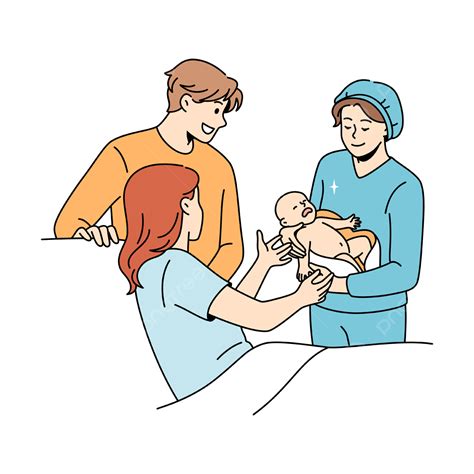
Coma survivors are sharing their experiences of what they encountered while unconscious, challenging conventional understandings of this altered state of awareness. Reports range from feeling trapped and aware of their surroundings to experiencing profound spiritual journeys and encounters, offering a glimpse into the complex and often misunderstood world of comas.
For many, the word “coma” evokes images of a deep, dreamless sleep, a state of complete unawareness. However, a growing body of anecdotal evidence suggests that the reality of being in a coma can be far more complex and varied. Individuals who have emerged from comas are increasingly sharing their accounts, painting a picture of experiences that challenge traditional medical definitions and raise profound questions about consciousness, the nature of reality, and the possibility of awareness beyond physical limitations.
The accounts, while subjective, frequently include themes of awareness of sounds and conversations happening around them, feeling trapped within their own bodies, vivid dream-like sequences, and even out-of-body experiences. Some survivors report interactions with deceased loved ones or spiritual entities, while others describe a sense of profound peace and understanding. These experiences, whether interpreted as neurological phenomena, psychological responses to trauma, or glimpses into another dimension of reality, offer a fascinating and often unsettling perspective on the human experience.
One common theme that emerges from these narratives is the feeling of being trapped, unable to communicate or interact with the world. Many coma survivors report hearing conversations between doctors, nurses, and family members, understanding what was being said, but being completely unable to respond. This experience can be incredibly frustrating and isolating, leading to feelings of anxiety, fear, and helplessness.
“I could hear everything that was going on around me,” one survivor recounted. “I knew my family was there, I knew the doctors were talking about me, but I couldn’t open my eyes, I couldn’t move, I couldn’t say anything. It was like being buried alive.”
Another survivor described a similar experience: “I felt like I was locked inside my own body. I could hear people talking, but I couldn’t respond. I tried to move, to open my eyes, but nothing happened. It was terrifying.”
These accounts highlight the importance of treating coma patients with respect and dignity, even when there is no apparent sign of awareness. Healthcare professionals should be mindful of the possibility that patients may be able to hear and understand what is being said, and should speak to them as if they were fully conscious. Family members should also be encouraged to talk to their loved ones, share memories, and provide emotional support.
In contrast to the feeling of being trapped, some coma survivors report experiencing profound spiritual journeys while unconscious. These experiences often involve encounters with deceased loved ones, spiritual entities, or a sense of oneness with the universe. They can be incredibly transformative, leading to a newfound sense of purpose, meaning, and connection.
“I saw my grandmother,” one survivor shared. “She was standing there, smiling, and she told me that everything was going to be okay. It was so real, so vivid. It felt like she was really there.”
Another survivor described a feeling of complete peace and understanding: “I felt like I was floating in a sea of light. I had no fear, no anxiety, just pure love and acceptance. It was the most beautiful experience of my life.”
These spiritual experiences raise questions about the nature of consciousness and the possibility of life after death. While they cannot be scientifically proven, they offer a powerful source of comfort and hope for many coma survivors. They also suggest that there may be more to the human experience than we currently understand.
The medical community remains divided on how to interpret these accounts. Some doctors and scientists dismiss them as hallucinations or dreams, products of a damaged brain struggling to make sense of its environment. They argue that the brain is simply misfiring, creating false sensory experiences that have no basis in reality.
“Comas are complex neurological events,” one neurologist explained. “The brain is severely damaged, and its normal functions are disrupted. It’s not surprising that people might have unusual experiences during this time. These experiences are likely the result of abnormal brain activity, not evidence of some kind of spiritual realm.”
Other medical professionals take a more open-minded approach, acknowledging that while the experiences may be rooted in neurological processes, they may also reflect a deeper level of consciousness that we do not yet fully understand. They argue that dismissing these accounts out of hand is a disservice to the patients who have experienced them.
“We need to listen to these stories,” one physician stated. “We need to take them seriously. They may not be scientifically explainable, but they are real to the people who have experienced them. And they may hold clues to understanding the nature of consciousness and the human experience.”
Further research is needed to fully understand the experiences of coma survivors. This research should include both neurological studies to examine brain activity during comas and qualitative studies to document and analyze the subjective experiences of survivors. By combining these approaches, we can gain a more complete picture of what it is like to be in a coma and what it means for the individual and their loved ones.
One promising area of research is the use of advanced brain imaging techniques to monitor brain activity in coma patients. These techniques, such as functional magnetic resonance imaging (fMRI) and electroencephalography (EEG), can detect subtle changes in brain activity that may indicate awareness or responsiveness. By studying these changes, researchers hope to identify biomarkers that can predict which coma patients are more likely to recover consciousness and which ones may be experiencing awareness even when they appear unresponsive.
Another important area of research is the development of communication technologies that can allow coma patients to communicate with the outside world. These technologies, such as brain-computer interfaces (BCIs), use sensors to detect brain activity and translate it into commands that can control a computer or other device. While these technologies are still in their early stages of development, they hold the potential to give a voice to coma patients who are currently unable to communicate.
In the meantime, it is important to approach the accounts of coma survivors with an open mind and a compassionate heart. These experiences, whether interpreted as neurological phenomena, psychological responses to trauma, or glimpses into another dimension of reality, offer a valuable perspective on the human experience. By listening to these stories, we can learn more about the nature of consciousness, the power of the human spirit, and the importance of treating all individuals with respect and dignity, regardless of their state of awareness.
The stories of coma survivors serve as a powerful reminder that even in the darkest of times, there is always hope. They remind us that the human spirit is resilient, that the mind is capable of incredible feats, and that there is always more to learn about the world around us and the world within us.
The impact of these shared experiences extends beyond the individual survivors and their families. They contribute to a broader societal conversation about consciousness, death, and the afterlife. They challenge conventional wisdom and encourage us to question our assumptions about the nature of reality. They also have implications for medical ethics and end-of-life care, prompting us to consider how we treat patients in altered states of consciousness and how we make decisions about their care.
As we continue to explore the mysteries of the human brain and the nature of consciousness, the stories of coma survivors will undoubtedly play a vital role in shaping our understanding. They offer a unique and valuable perspective on the human experience, reminding us that even in the face of profound challenges, there is always hope, meaning, and the possibility of transformation. The complexities surrounding these narratives underscore the need for continued research and open dialogue, fostering a greater understanding of the human condition in all its forms.
FAQ: Coma Survivor Experiences
1. What are some common experiences reported by coma survivors?
Coma survivors have reported a wide range of experiences, including:
- Awareness of surroundings: Hearing conversations, feeling touch, and sensing the presence of people around them.
- Feeling trapped: Being unable to move or communicate, leading to feelings of frustration and isolation.
- Vivid dreams or hallucinations: Experiencing realistic and often bizarre scenarios, sometimes involving deceased loved ones or spiritual figures.
- Out-of-body experiences: Feeling detached from their physical body and observing events from a different perspective.
- Spiritual or mystical experiences: Encountering a sense of peace, unity, or connection to something larger than themselves.
- Time distortion: Experiencing time differently than in a conscious state, with periods feeling much longer or shorter than they actually were.
- Pain and discomfort: Feeling physical pain or discomfort without being able to express it.
- Loss of memory: Having difficulty remembering events that occurred before, during, or after the coma.
2. Are these experiences considered real, or are they just hallucinations?
The reality of these experiences is a subject of debate within the medical community. Some doctors and scientists believe that they are simply hallucinations or dreams caused by abnormal brain activity. Others believe that they may reflect a deeper level of consciousness that we do not yet fully understand. There is no scientific consensus on the matter, and more research is needed to fully understand the nature of these experiences.
It’s important to note that regardless of their origin, these experiences are very real to the individuals who have them. They can have a profound impact on their lives, shaping their beliefs, values, and perspectives. It is crucial to approach these accounts with empathy and respect, regardless of one’s personal beliefs or scientific understanding.
3. What causes these experiences during a coma?
The causes of these experiences are not fully understood, but several factors may contribute:
- Brain damage: The underlying injury or condition that caused the coma can disrupt normal brain function, leading to unusual sensory experiences and cognitive distortions.
- Medications: Some medications used to treat coma patients can have side effects that alter perception and cognition.
- Sensory deprivation: Being isolated from normal sensory input can lead to hallucinations and other altered states of consciousness.
- Psychological factors: Stress, anxiety, and fear can also contribute to the experiences of coma survivors.
- Neurological misfiring: Abnormal electrical activity in the brain can create false sensory experiences.
4. Can coma patients hear or understand what is being said around them?
Many coma survivors report being able to hear and understand conversations that took place around them while they were unconscious. However, it is difficult to verify this definitively, as patients are unable to communicate their awareness during the coma. Some studies using brain imaging techniques have shown that some coma patients may be able to process auditory information, even when they appear unresponsive. This suggests that it is important to treat coma patients with respect and dignity, speaking to them as if they were fully conscious.
5. How can families support loved ones in a coma and after they recover?
Supporting a loved one in a coma and after they recover can be challenging, but there are several things families can do:
- Talk to them: Even if they appear unresponsive, talk to your loved one about familiar things, share memories, and provide emotional support.
- Play music: Music can be soothing and stimulating, and it may help to keep your loved one connected to the world.
- Provide sensory stimulation: Gently touch your loved one, massage their hands and feet, and expose them to pleasant scents.
- Advocate for their care: Work with the medical team to ensure that your loved one is receiving the best possible care.
- Be patient and supportive: Recovery from a coma can be a long and difficult process. Be patient with your loved one and offer them encouragement and support.
- Seek professional help: Consider seeking support from a therapist or counselor to help you cope with the emotional challenges of having a loved one in a coma.
- Educate yourself: Learn as much as you can about comas and brain injuries to better understand what your loved one is going through.
- Join a support group: Connecting with other families who have experienced similar challenges can provide valuable emotional support and practical advice.
- Respect their experiences: If your loved one shares their experiences from the coma, listen with an open mind and validate their feelings, even if you don’t fully understand what they went through.
- Celebrate small victories: Acknowledge and celebrate even the smallest signs of progress, as they can be a source of hope and encouragement for both your loved one and your family.
The complexities of coma experiences highlight the importance of a multidisciplinary approach to patient care, integrating neurological expertise, psychological support, and spiritual sensitivity. As research continues to unravel the mysteries of consciousness, the voices of coma survivors will undoubtedly play a crucial role in shaping our understanding of the human mind and the nature of reality. Their stories serve as a testament to the resilience of the human spirit and the enduring power of hope, even in the face of profound adversity.
Furthermore, the exploration of coma experiences extends beyond the clinical setting, raising fundamental questions about the definition of life, death, and the very essence of being. These questions have implications for ethical considerations in end-of-life care, organ donation, and the legal rights of individuals in altered states of consciousness. As society grapples with these complex issues, the perspectives of coma survivors provide invaluable insights, challenging us to reconsider our assumptions and embrace a more holistic and compassionate approach to human life in all its forms. The ongoing dialogue surrounding coma experiences serves as a catalyst for intellectual inquiry, ethical reflection, and societal progress, fostering a deeper understanding of the human condition and our place in the universe.
The study of coma experiences also contributes to the broader field of consciousness research, which seeks to understand the nature of subjective experience and its relationship to the physical world. By examining the altered states of consciousness experienced during a coma, researchers can gain insights into the neural correlates of awareness, the role of attention and perception in shaping our experience of reality, and the potential for consciousness to exist independently of the body. These insights have implications for a wide range of disciplines, including neuroscience, psychology, philosophy, and artificial intelligence. As our understanding of consciousness deepens, we may be able to develop new technologies and therapies to improve the lives of individuals with brain injuries and other neurological conditions. The exploration of coma experiences is therefore not only a matter of clinical importance but also a fundamental endeavor to unravel the mysteries of the human mind and the nature of consciousness itself.









